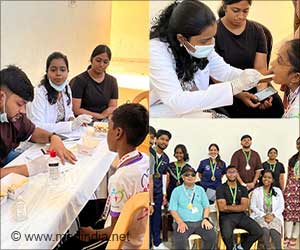In what is being hailed as a milestone, researchers at the Wake Forest University in North Carolina have managed to create a bladder in laboratory conditions and what’s more have implanted these bladders into seven children suffering from bladder disease. The research team led by Dr. Anthony Atala has published their experimental study in the online issue of The Lancet.
All the seven children in the study were suffering from a birth defect called spinal myelomeningocele, which means that the spines have not been properly fused after birth. This meant that the protruding nerves used to impinge on the bladder thus weakening it and leading to incontinence. The usual treatment in such cases in reconstructive surgery using tissue grafts from the patients' intestines. But this could expose patients to risk of kidney stones or even cancer. In the current study, researchers used the patients’ own cells to create a bladder in the laboratory and then grafted the same onto the existing bladders so as to create a functionally better organ. Dr Anthony Atala, who led the team, said that he began working on tissue engineering processes about 16 years ago and implanted all seven children before he left Children's Hospital in Boston in 2004. "This is one small step in our ability to go forward in replacing damaged tissues and organs," Dr Atala said. "This is a small, limited experience, but it has enough follow-up to show us that tissue engineering is a viable tool that will allow us to tackle problems of similar magnitude." His team is currently working on 20 different organs and tissues in the laboratory.Researchers Create Bladder In The Lab
Recommended Readings
Advertisement









